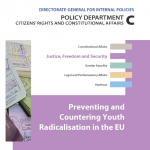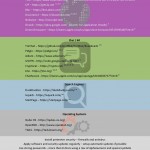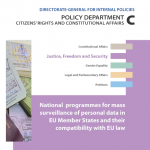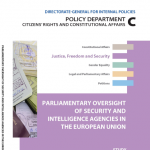
Upon request by the LIBE Committee, this study focuses on the question of how to best prevent youth radicalisation in the EU. It evaluates counter-radicalisation policies, both in terms of their efficiency and their broader social and political impact. Building on a conception of radicalisation as a process of escalation, it highlights the need to take into account the relation between individuals, groups and state responses. In this light, it forefronts some of the shortcomings of current policies, such as the difficulties of reporting individuals on the grounds of uncertain assessments of danger and the problem of attributing political grievances to ethnic and religious specificities. Finally, the study highlights the ambiguous nature of pro-active administrative practices and exceptional counter-terrorism legislation and their potentially damaging effects in terms of fundamental rights.



